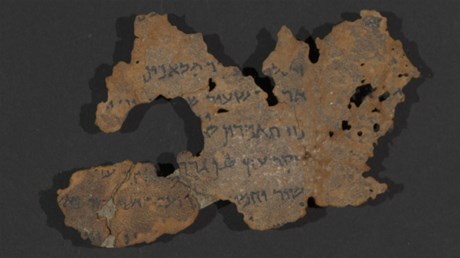And other things you wanted to ask an expert in forged biblical antiquities.

The recent discovery of forged fragments of the Dead Sea Scrolls at the Museum of the Bible has called attention to the problem of faked antiquities. Evangelical collectors are thinking twice about spending money on rare bits of Bible history, fearing they could be expensive frauds, as Gordon Govier reports in the December issue of CT. But the problem is deeper than that, says George Washington University professor Christopher Rollston, an expert on ancient biblical inscriptions and the author of a forthcoming book on modern-day frauds. Forgeries corrupt what we think we know about the world of the Bible and create serious challenges for scholars trying to learn about the cultures that produced Moses, David, the prophets, and Christ’s first followers. Rollston thinks scholars have to be much more suspicious of forgeries and evangelicals should stop buying from the antiquities market.
How hard is it to forge a fragment of the Dead Sea Scrolls?
Forgers today have really become quite good. It’s not something that just anybody can do. And when just anybody attempts it, it’s painfully obvious that it’s a modern forgery and a particularly bad one.
Basically what is required is a good knowledge of the ancient language, whether that’s Hebrew, Aramaic, Greek, Latin, or Coptic; a very good knowledge of the script; and a really good knowledge of the medium as well. A forger has to know how a piece was produced, like the chemical composition of the ink and other technical aspects. But if someone knows the language quite well and knows the script and has access to a scanning electron microscope with extended depth-of-field determinations of the chemical composition of the patina and the inks, it’s not ...
from Christianity Today Magazine
via

.gif)

.gif)

.gif)
.gif)
